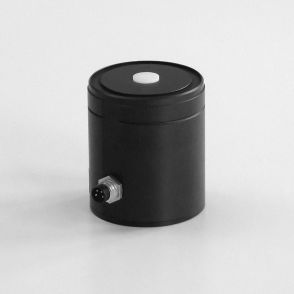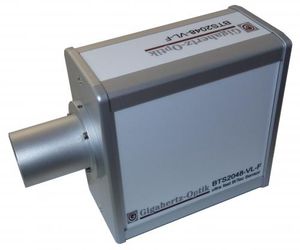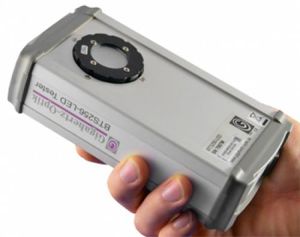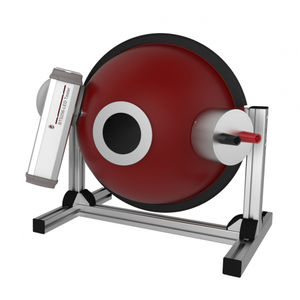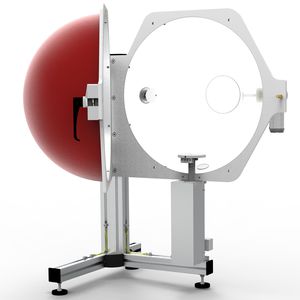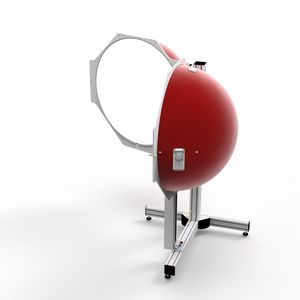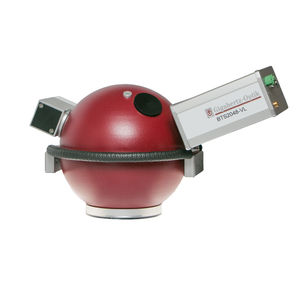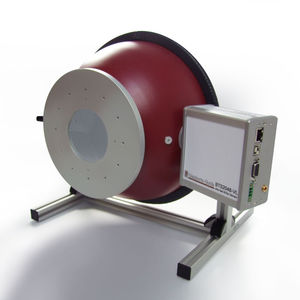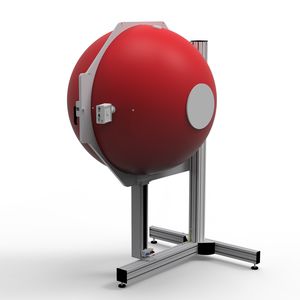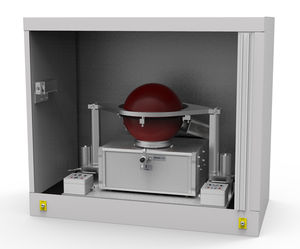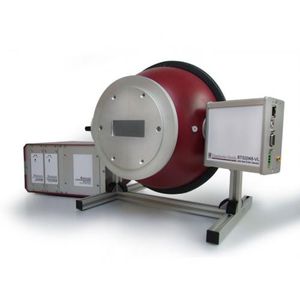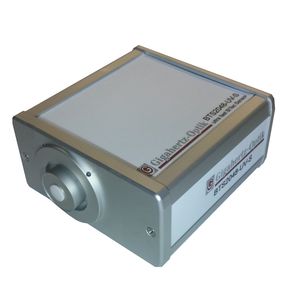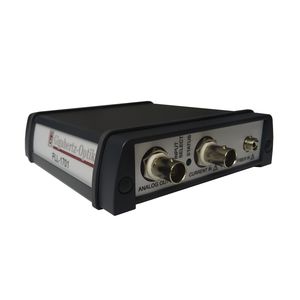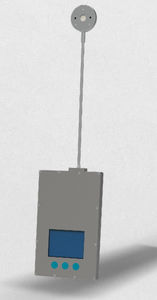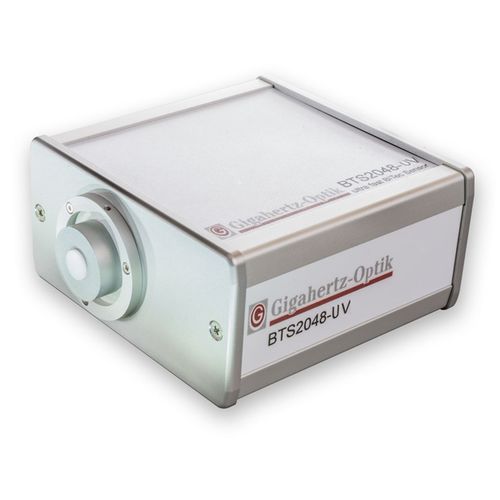
- Detection - Measurement
- Optical and Acoustic Measurements
- CCD spectroradiometer
- Gigahertz Optik GmbH
- Products
- Catalogs
- News & Trends
- Exhibitions
CCD spectroradiometer BTS2048-UVmeasurement

Add to favorites
Compare this product
Characteristics
- Other characteristics
- CCD
- Applications
- measurement
- Wavelength
Max.: 430 nm
Min.: 190 nm
Description
UV CCD spectroradiometer vs. broadband CCD spectrometer
The spectral responsivity of conventional CCD detectors usually lies within the 200 nm to1100 nm range. Often, this wide spectral responsivity range of the CCD detector is claimed as the responsivity range of the spectroradiometer. However, this fails to consider the spectral response function of the dispersion grating, which further reduces the detector’s responsivity in the UV spectrum. This results in significant errors in the UV measurement signal, primarily through long-wave stray light. The spectral resolution of broadband spectrometers is often not sufficient to guarantee precise measurements of e.g., narrowband UV LEDs.
CCD spectroradiometers that are specifically designed for UV radiation have a constrained spectral range and allow for a very high grating efficiency in connection with a very high spectral resolution. In addition, optical filters can also be used to significantly reduce stray light.
BTS2048-UV CCD spectroradiometer for UV radiation
The BTS2048-UV meets all the requirements of a high-end UV diode array spectroradiometer and is available at an attractive price despite its cutting-edge technology.
One unique feature of the BiTec sensor is its combination of a back-thinned CCD spectrometer and a Si photodiode that offers high linearity levels enabling extremely fast measurements. The fully linearized 2048 pixel CCD detector with thermoelectric cooling offers a very wide dynamic range thanks to its integration time that ranges from 2 µs to 60 s. This enables precise measurements of UV LEDs in a broad intensity range.
Catalogs
Other Gigahertz Optik GmbH products
Spectral light meters, UV-VIS-NIR spectroradiometers
Related Searches
- Spectrophotometer
- Compact detector
- Visible spectrophotometer
- Benchtop spectrophotometer
- Optical detector
- UV spectrophotometer
- Lux meter
- Process detector
- Digital luxmeter
- Electric current detector
- Laboratory detector
- Spectroradiometer
- Absorption spectrophotometer
- Light sensor
- Measuring spectrophotometer
- Portable spectrophotometer
- Integrating sphere
- Calibration detector
- Measurement spectroradiometer
- Transmission spectrophotometer
*Prices are pre-tax. They exclude delivery charges and customs duties and do not include additional charges for installation or activation options. Prices are indicative only and may vary by country, with changes to the cost of raw materials and exchange rates.







